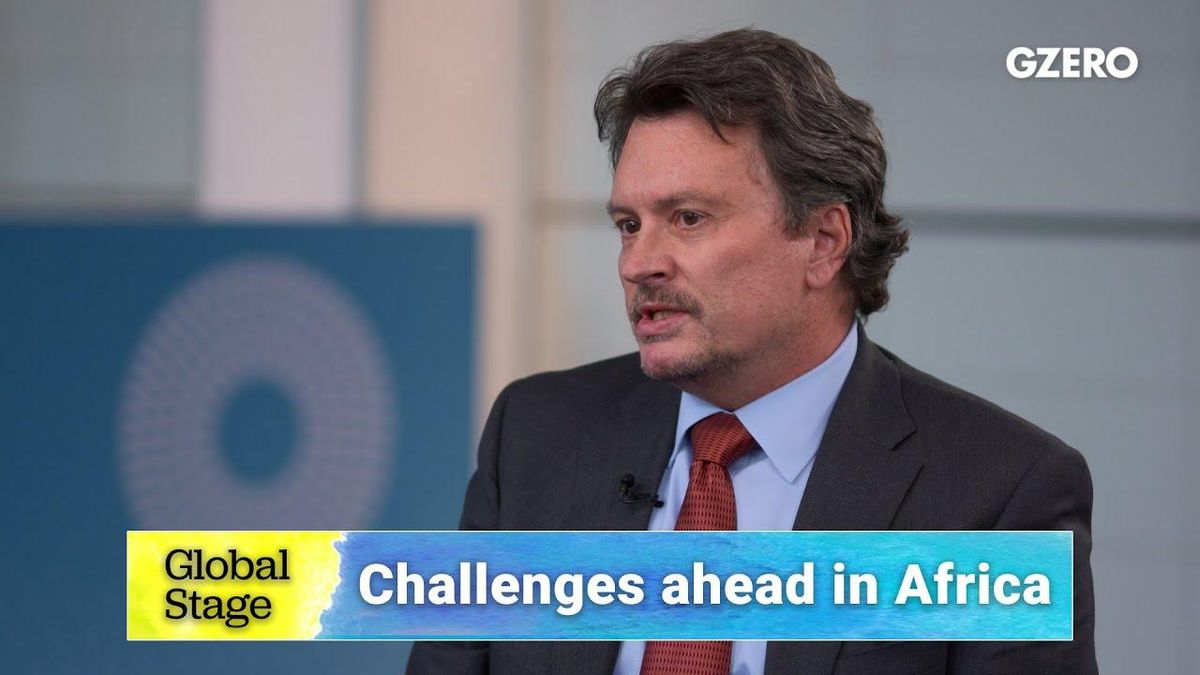Sub-Saharan Africa was on the brink of economic recovery last year. Now, the World Bank expects its growth to slow in 2023. With global inflation on the rise, rising food and fuel costs “actually put lives at risk in a way few other shocks can," says International Monetary Fund (IMF) senior economist Andrew Tiffin.
And sub-Saharan Africa is particularly vulnerable: 123 million people there are currently food-insecure, while the region accounts for 6% of the global energy demand. With climate change exponentially leading to those numbers rising, Tiffin says: “Any globally viable discussion has to take into account Africa’s concerns and needs. Because without that, there is simply no solution.”
The IMF’s latest analysis and growth projections for sub-Saharan Africa were released in a new report, available here: https://imf.org/AfricaREO-Oct22
Tiffin spoke in a Global Stage interview with Shari Friedman, Eurasia Group's managing director for Climate and Sustainability, at the World Bank/IMF fall meetings in Washington, DC.
- What We're Watching: Africa got grain, Ukraine counteroffensive ... ›
- West Africa needs a fresh approach to democracy - GZERO Media ›
- A “combustible situation” in the eastern DRC - GZERO Media ›
- Russia and the West battle it out in Africa - GZERO Media ›
- Why young people belong on the frontline of the climate fight - GZERO Media ›

















